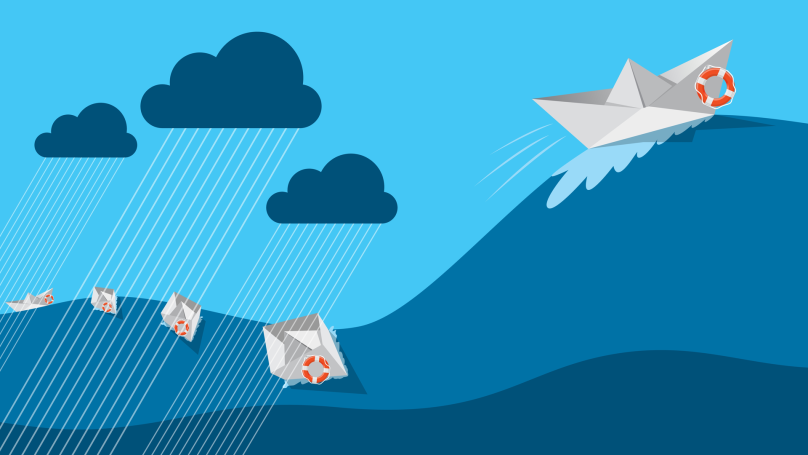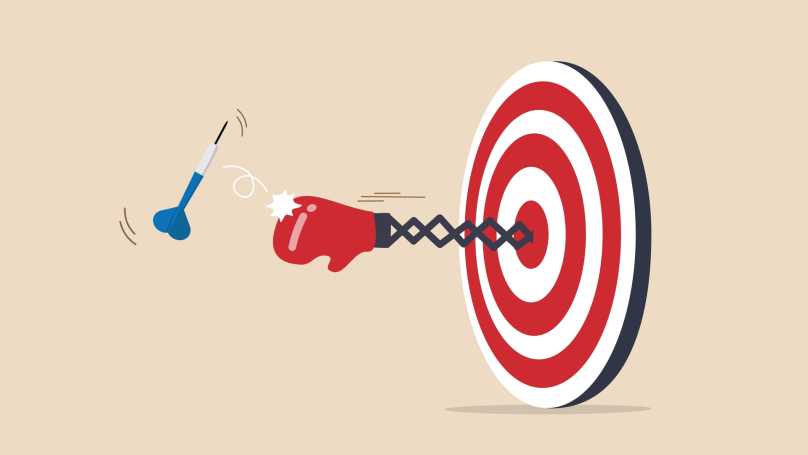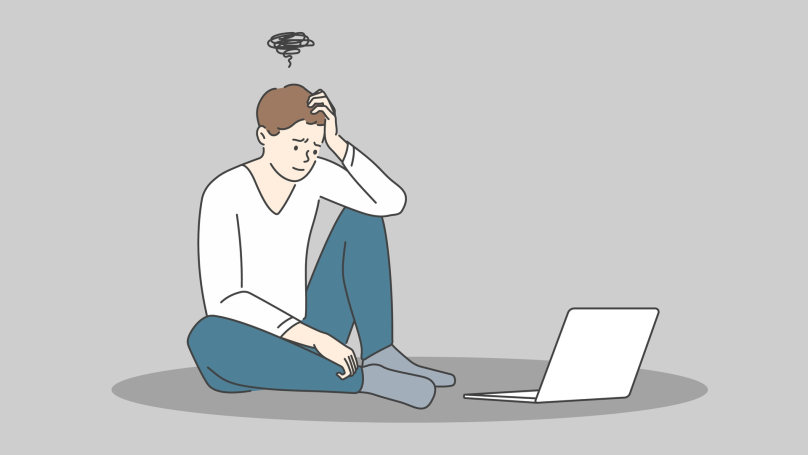How do you go through difficult times? 7 tips + techniques from cognitive behavioural therapy
We will not advise you to calm down, take a deep breath and not read the news - it is unlikely to help you. Instead, we will tell you how you can actually help yourself when you are feeling overwhelmed, and...

We will not advise you to calm down, take a deep breath and not read the news - it is unlikely to help you. Instead, we will tell you how you can actually help yourself when you are feeling overwhelmed, and global events seem to be a dead end with no way out.
Try changing your attitude

We get that this may seem impossible right now and practically inaccessible. But the best thing you can do to protect your psyche from the influence of the current events is to at least slightly change the way you feel about them. You can, for example, artificially reduce the level of significance of what is happening by focusing on your life, on things that do not wait, and on plans that require immediate execution. Breaking away from reading the headlines or replaying scenarios in your head can seem unattainable right now, but if you try hard enough, you will definitely be able to shift your focus to other things, prioritising your state over your feelings.
Every time you notice that your focus shifts to something other than yourself, try to bring it back. Ask yourself questions like, "How do I feel? Why do I feel this way? What should I do to make it better and easier for me?" Act according to the answers. Don't let yourself go, even if it seems like the situation calls for it.
Form your own opinion about what is happening

This can help you decide which messages and information you will analyse and which ones you will ignore. Do not rush to take a certain side of the conflict or wear sackcloth and ashes, believing that certain actions of yours were wrong. Your opinion can be clear and constant filtering of information, allowing you to refuse to consume propaganda messages. Or, for example, you can unsubscribe from accounts and media broadcastsa which are not entirely impartial in their view of the situation. Even conscious distancing from events will be considered your opinion. The main thing is to choose an opinion consciously, without basing it on anyone's arguments.
Don't panic 24/7

Most likely, you will not be able to change the situation globally. If you understand that there is a way to influence it (and it does not include you doing illegal things), use it right now. Difficult times can be different, and when they specifically concern you or your family, they are actually at arm's length. In all other cases, you shouldn't run around in panic, write to your friends, asking "What do you think will happen next?" and make rush decisions. Try to stop yourself at the moment when you realise that your actions come from fear rather than calmness. Wait at least two minutes and only after this time return to the task you wanted to do.
Don't make drastic and important decisions

Increase your "traditional" time to think about your decisions at least twice. Write down what will be the most profitable and justified decision, consider more options for action than before. Treat your choice carefully, thoughtfully and, if possible, impartially. Do not change jobs, do not drop out of school, do not move if this decision is dictated only by the events taking place around you. Think a few steps ahead: how your life will change from the choice made, whether it will affect the lives of people close to you, what will happen to your savings, how the decision will affect you in about 5 years.
Praise yourself for every action

Too often we forget that we should praise ourselves after every small action that leads to our dream result. This is considered a conditionally non-working way to raise your self-esteem and motivate yourself to do something. In fact, in difficult times, nothing helps you more than faith in yourself and your abilities. Were you able to take 20 minutes to make a decision instead of the usual 10? Did you mute channels in Telegram, telling about what is happening every minute? Then treat yourself: read a book that you have been putting off for months, play sports (at home, too), watch a movie, and so on. Only do not surf the Internet, if a difficult situation is covered in the news. This will certainly not make you feel better.
Take care of yourself

Self-care is often perceived as archaic or one of the components of the overachievers cult. I buy and apply face masks, so I take care of myself. I force myself to learn information that I'm not interested in, so it means that I care about my future. I work a lot without enjoying it, which means I provide myself with a comfortable financial cushion, but I don't care about the joy of routine tasks.
It doesn't work that way. Taking care of yourself in a difficult life situation means refusing to be flooded with information, allowing yourself to cry as much as you like, recognising and taking into account your emotions and feelings when performing your duties. You can also take care of yourself by using the Automatic Thought Tracking technique popular with CBTs. It will help you track, explore, and transform your response to stressful events. You will find a link to the technique at the end of the article.
Lectera’s Online Courses by topic
Adapt to the new reality

Now you live in such a reality where you have no way back. You won't be able to "roll back", reload the game in the hope of a new scenario, convince everyone around you that they should do a certain thing. Try to accept the real state of affairs. Think about how you can survive in it, taking the calm final resolution of events as a fundamental truth. Rely on your experience, not on the ways to cope with what is happening online. Whether it's moving to another country without money, an unpleasant separation from a loved one, or an armed conflict - listen to your heart and do not put the responsibility for finding a solution on other people.
In the Lectera course "Stress Management. 40 Techniques: Improving Your Life," we have collected useful exercises and techniques that help you settle your mind and return to a resourceful state.
Reality does not always match our expectations. And that's okay. The ideal reality, which would repeat our ideas about it to the letter, will never happen. Everything that happens is temporary anyway. We are sure that you will cope with the situation that has happened in your life and it will get better.
Share this with your friends via:
Latest News

In the UK, £23 million has been allocated for the expansion of the EdTech Testbed program — pilots of educational technologies in schools and colleges.

In the US, Tuskegee University announced the launch of Tuskegee University Global Campus (TUGC) — a new online platform for distance learning.

A significant stage in the development of the alternative education system has begun in West Northamptonshire in the UK: the County Council is actively calling on parents, guardians, and trustees to participate in shaping the future of this key area.

Outwoods Primary School in Atherstone, Warwickshire, having experienced deep sadness after the loss of their famous cat, Silla, has found solace in a new pet – a Maine Coon named Aloysius O’Hara.

In modern universities, artificial intelligence, and in particular ChatGPT, is rapidly transforming from a controversial tool into a full-fledged student assistant.












 Spring skills audit: what to remove, strengthen, and “sow” in learning
Spring skills audit: what to remove, strengthen, and “sow” in learning
 9 Career Mistakes Young Professionals Make
9 Career Mistakes Young Professionals Make
 £23 million allocated for the expansion of EdTech Testbed in the UK
£23 million allocated for the expansion of EdTech Testbed in the UK
 Test: How Psychologically Mature Are You? Check Your Inner Foundation.
Test: How Psychologically Mature Are You? Check Your Inner Foundation.
 Test. Check Your Social Media Dependency Level!
Test. Check Your Social Media Dependency Level!
 Test: What Business is Right For You?
Test: What Business is Right For You?
